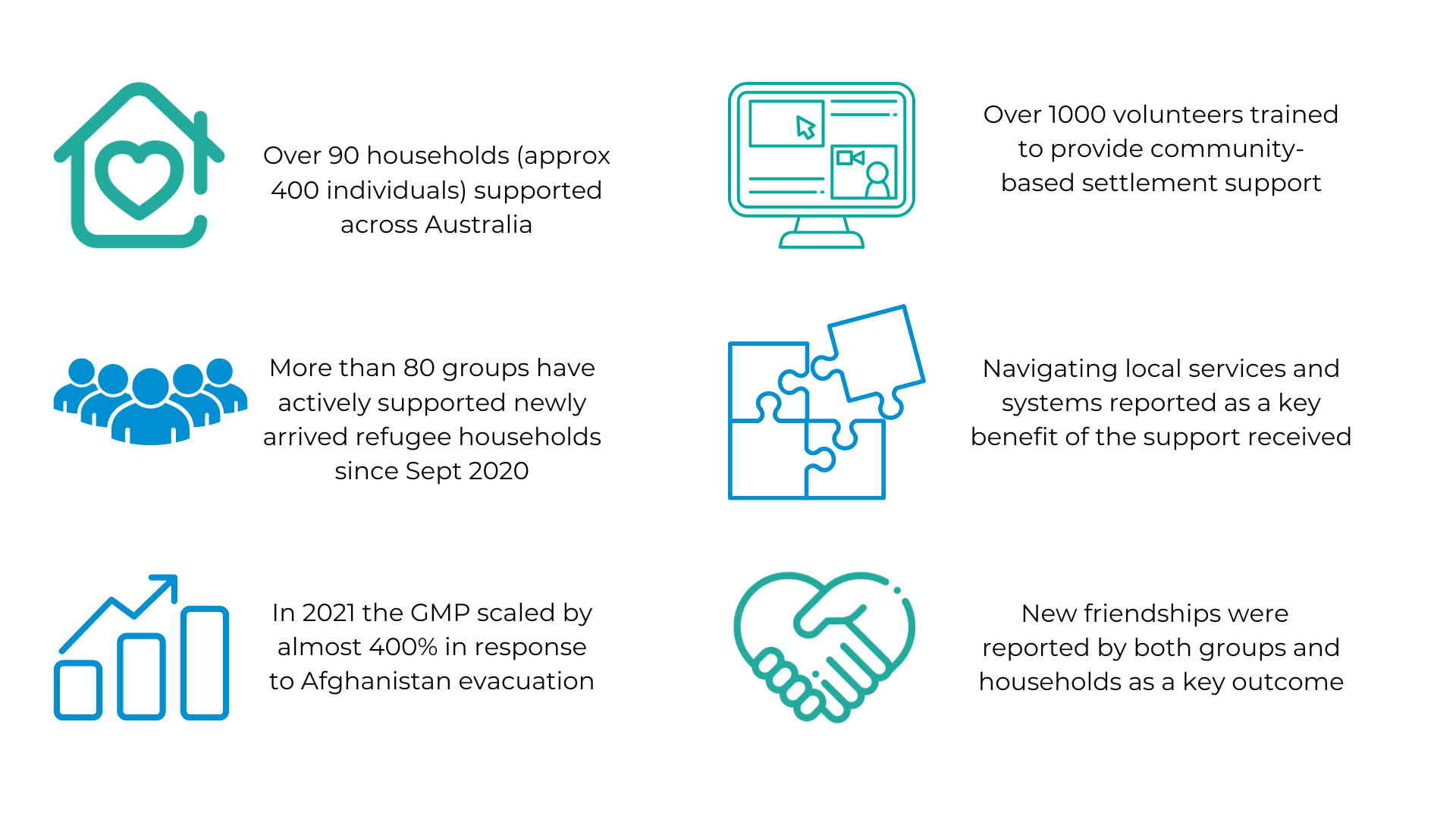Other programs
Innovative support for skilled refugee migrants
Talent Beyond Boundaries (TBB) matches skilled refugees with companies and businesses in need of their skills. Employers gain valuable talent and displaced people have a chance to rebuild their careers and lives.
TBB works directly with governments to open skilled migration pathways for refugees that benefit individuals, family members, communities, and the economy. CRSA is supporting this work by collaborating with TBB, employers and community members to assist in mobilising groups to provide holistic settlement and integration support to those arriving through this pilot program. This is modelled on the Community Integration and Settlement Pilot (CRISP).
If you’re an employer and would like to know more about this exciting new program, get in touch using our contact us form.
TBB collaborates with others and shares learnings so that more people can access the pathways being opened via this model. Additionally, this model can be replicated around the world.
For more information, visit the TBB Australia page.
Group Mentorship Program
Initiated in June 2020, the Group Mentorship Program (GMP) connected refugees who had already arrived in Australia, but needed additional support, with a trained group of local volunteers.
Mentor groups provided support, connection and friendship to mentees building the foundations for their new life in Australia.
The GMP was developed as a proof of concept to show government and policy makers that a full Canadian-style ‘community sponsorship’ program could succeed in Australia. With the introduction of the new federal government Community Refugee Integration and Settlement Pilot (CRISP) in 2022, the GMP had achieved its initial purpose and CRSA ceased accepting new applications, with new groups instead encouraged to participate in the CRISP.
Learnings from the GMP are being incorporated into CRSA’s work as it rolls out the CRISP. CRSA is now engaged in a review and write up of the GMP model, its impact and potential future applications in the settlement landscape.

“It’s really just being there as a friend and support, it’s quite an easy thing for me to do, I speak the language and I know the culture but it means so much to them because they don’t. I was their first mate here so I was able to help them.”
Rebecca – Mentor
The GMP model



Mentees were generally seeking support with things like learning English, establishing their career, furthering their studies and making social connections.
Hear from some everyday Australians who put their hands up to support refugees settling in their communities.
If you can't find what you're looking for, try checking CRSA's resources, including our Frequently Asked Questions.
Otherwise, feel free to get in touch with us via our Contact Us page.
